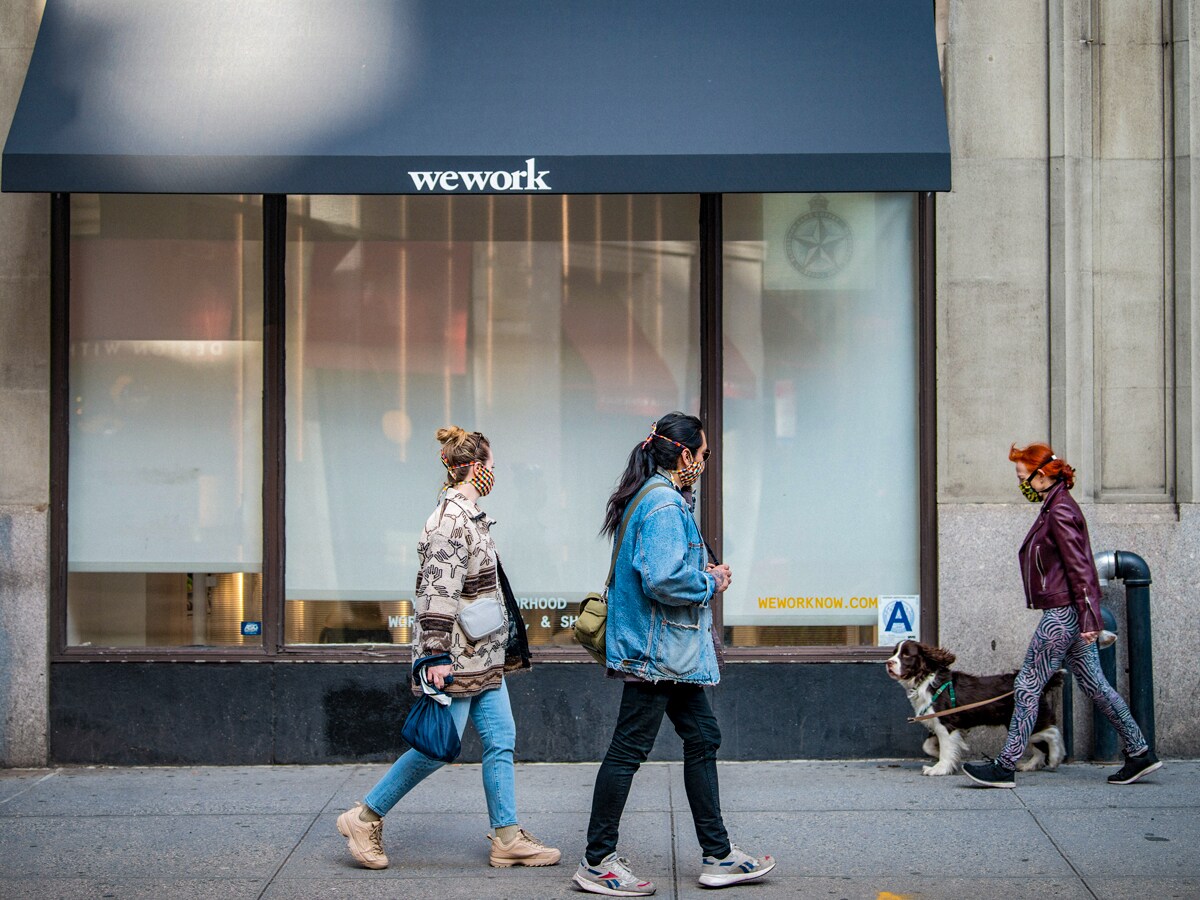WeWork has made a shock announcement, stating plans to go public via a special purpose acquisition company (SPAC) involving Shaquille O’Neal. This follows news that WeWork lost $3.2bn in 2020 and comes two years after its first attempt to go public failed rather spectacularly.
With working from home one of last year's big investment themes, it may seem like an odd time for the firm to attempt a $9bn valuation.
Enter BowX [BOWX], a SPAC that counts Shaquille O’Neal as one of its advisors. Reports suggest that WeWork is in talks with the SPAC over a potential merger and is reportedly looking for $1bn in funding to hit a $9bn valuation — well below the $47bn that it was valued at following private financing from SoftBank [9984] in 2019.
$9billion
WeWork's expected valuation after funding - in 2019 it was valued at $47bn
Should investors care about a WeWork IPO?
In documents seen by the Financial Times, WeWork is once again refusing to describe itself as an office space company. Instead, it is describing itself as a “worldwide property technology platform” and “asset-light”. The documents include a predicted bounce back to 90% occupancy by 2022, which is well above its pre-pandemic levels, as the FT notes. They also predict an EBITA of $485m for 2022, with revenues growing from $3.2bn in 2020 to $7bn in 2024.
“WeWork has spent the past year transforming the business and refocusing its core, while simultaneously managing and innovating through a historic downturn. As a result, WeWork has emerged as the global leader in flexible space with a value proposition that is stronger than ever,” said Sandeep Mathrani, WeWork CEO.
“WeWork has spent the past year transforming the business and refocusing its core, while simultaneously managing and innovating through a historic downturn. As a result, WeWork has emerged as the global leader in flexible space with a value proposition that is stronger than ever” - Sandeep Mathrani, WeWork CEO
How achievable WeWork’s revenue targets are is up for debate. WeWork’s business cratered last year as occupancy rates crashed from 72% to 47%, per the Financial Times. According to the publication, WeWork’s losses come despite cutting its capital expenditure to $49m, a 98% drop from the $2.2bn it was spending in 2019.
Where next?
While WeWork’s stylish office spaces were buzzing in 2019, it is now looking to list in a world in which the pandemic has changed the nature of white-collar work. Companies offering remote working solutions like Zoom [ZM], Slack [WORK] and Microsoft [MSFT] have seen their stocks soar. Facebook [FB] has said that employees can work from home forever, while HSBC [HSBC] and Lloyds [LLOY.L] banks have reduced office space by 40% and 20% respectively. Lloyds cited a survey that showed 77% of its 68,000 employees wanted to work from home for three or more days a week.
This shift is reflected in the Direxion Work From Home ETF [WFH], which is up more than 31% over the past year. However, WeWork might actually benefit from the move to flexible working.
31%
Rise of the Direxion Work From Home ETF over the past year
“Instead of having just an office space, we’ll have a workplace ecosystem,” David Smith, Americas head of occupier research at Cushman & Wakefield, told Vox Recode. So, while people won’t go to the office every day, they will still need office space for learning, collaboration and socialising.
As a provider of office space that can be leased, WeWork offers a way for businesses to operate this flexible model without the long-term costs of owning property. Recode cites data that shows enterprise companies — those with 500 or more employees — now account for 54% of WeWork’s membership. These tend to be more stable than smaller members and often lease whole floors.
WeWork’s IPO comes at a time when a return to the office is likely to happen in some form. Whether its flexible business model can align to new ways of working will go a long way in determining how good an investment opportunity its IPO will be.
Disclaimer Past performance is not a reliable indicator of future results.
CMC Markets is an execution-only service provider. The material (whether or not it states any opinions) is for general information purposes only, and does not take into account your personal circumstances or objectives. Nothing in this material is (or should be considered to be) financial, investment or other advice on which reliance should be placed. No opinion given in the material constitutes a recommendation by CMC Markets or the author that any particular investment, security, transaction or investment strategy is suitable for any specific person.
The material has not been prepared in accordance with legal requirements designed to promote the independence of investment research. Although we are not specifically prevented from dealing before providing this material, we do not seek to take advantage of the material prior to its dissemination.
CMC Markets does not endorse or offer opinion on the trading strategies used by the author. Their trading strategies do not guarantee any return and CMC Markets shall not be held responsible for any loss that you may incur, either directly or indirectly, arising from any investment based on any information contained herein.
*Tax treatment depends on individual circumstances and can change or may differ in a jurisdiction other than the UK.
Continue reading for FREE
- Includes free newsletter updates, unsubscribe anytime. Privacy policy





